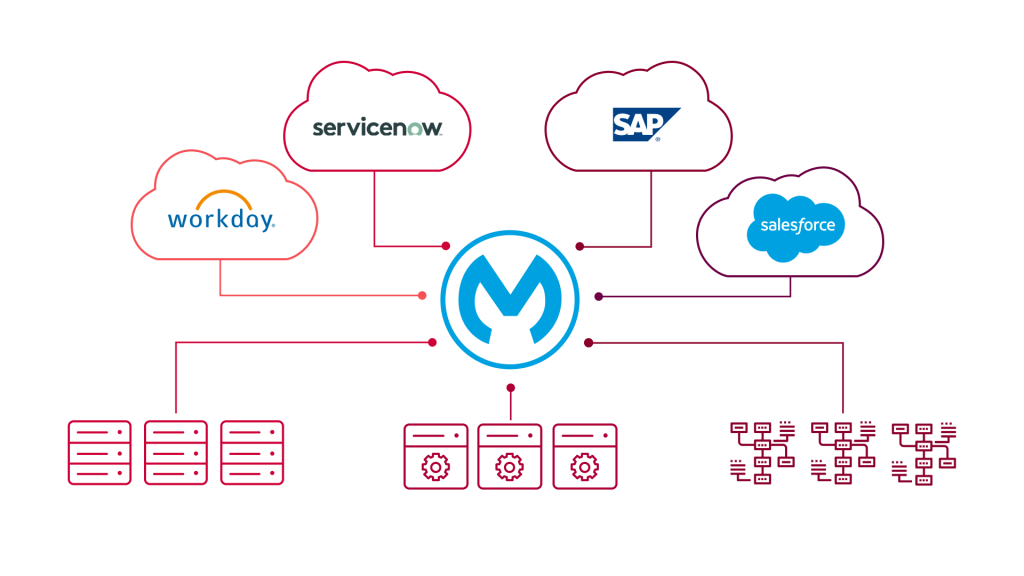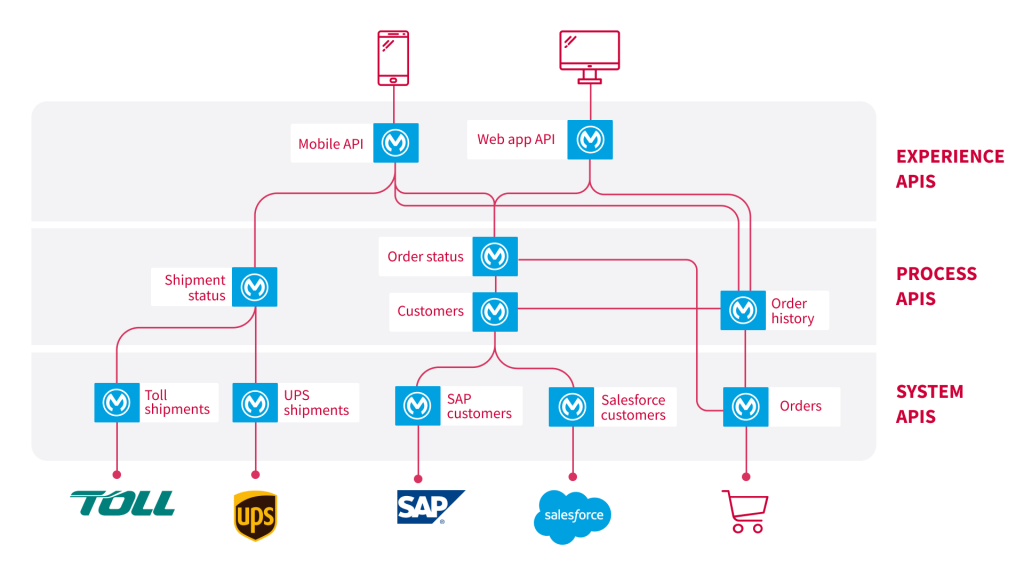Blog
07/05/2021
Driving digital transformation with API-led integrations
A successful 360-degree customer view is built by combining data from several applications, systems and data sources within an organization. Therefore integrations are one of the main drivers of the organization's successful digital transformation.
As the number of technologies and initiatives required to support digital transformation grows (e.g. cloud systems, APIs, IOT devices etc.), so too does the amount of integration work required. When using point-to-point integration solutions, the projects tend to move slower. The organisation’s IT department might not be able to deliver these initiatives at the speed the business requires. Also, these solutions offer limited reuse as there is no easy way to share the assets created.
Plus, some businesses might face challenges due to reliance upon monolithic legacy systems. These are a barrier to digital transformation. Some organisations have added products and processes hard-wired into these legacy systems, which has added complexity and has created a dependence upon understanding these outdated systems in order to implement new business processes.
Addressing integration through point-to-point custom code does each successive integration project as hard as the last and makes it difficult to adapt to evolving business requirements.
Anypoint Platform and API-led connectivity approach
Mulesoft’s Anypoint platform lets companies design, build and manage reusable APIs and integrations at lightning speed. With it, companies can build application networks of apps, data, and devices both on-premises and in the cloud.

Mulesoft’s Anypoint Platform
The solution allows businesses to accelerate digital innovation by increasing the speed at which IT can deliver projects and providing IT with the agility to adapt to changing business requirements over time.
To decouple business processes and user experiences from the underlying data systems, MuleSoft suggests breaking apart monolithic systems into three layers of APIs: Experience, Process and System APIs.
The Experience APIs are used to deliver an experience typically for devices (mobile, web, Alexa), partners or apps (Salesforce, SAP, etc.). The Process APIs are used to compose data into processes (business capabilities or use cases). These APIs interact and shape data within a single system or across systems breaking down data silos. The system APIs usually access the core systems of record and provide a means of insulating the user from the complexity or any changes to the underlying systems.

Different layers of APIs
This new approach enables agility because companies, developers and businesses no longer have to understand the complexities of legacy back-end systems in order to innovate.
Mulesoft also provides Anypoint Exchange, a marketplace that companies can use to increase delivery speed as it contains a wide list of prebuilt components such as advanced system connectors, configurable integration templates, best practices, accelerators, and APIs. There you can find ready-made assets from the MuleSoft ecosystem, or use Exchange to save, share, and reuse your organisation’s internal assets, such as APIs and integration templates.
The benefits of Anypoint Platform and API-led connectivity approach
There are many major benefits of leveraging the Mulesoft Anypoint platform and the API-led connectivity approach.
Faster delivery speed
Mulesoft provides advanced and user-friendly integration and API management tools to accelerate delivery and unlock data easily with prebuilt assets.
Reduced build, deploy & run costs
Companies can save development time and money by using the advanced out-of-the-box features and, rather than reinventing the wheel, building projects faster, reusing organisation assets as well as from the Mulesoft Exchange. With Mulesoft, each single integration block or API can be reused to build new integrations.
Simpler and cheaper integration and applications maintenance
With the modular approach, changes only affect small integration blocks, so maintenance is cheaper, faster and less risky.
Improved project quality
The testing team will reduce the number of production incidents with the Mulesoft testing suite that includes a testing framework (MUnit), auto-testing, visual debugger and many more advanced testing features.
Increased security and governance
Anypoint platform is secure by design, providing out-of-the-box advanced security features such as API access and identity management, penetration testing policies, encryption modules, audit logs, and more. The platform has certified compliance with regional and industrial security standards.
Increased customer engagement
MuleSoft Anypoint allows businesses to easily and quickly build 360-degree customer views, allowing them to deliver personalised experiences, increase customer loyalty and anticipate customers’ future needs.
MuleSoft Anypoint, with the API led connectivity approach, reduces the integration complexity by avoiding tightly coupling systems. Businesses can quickly integrate any new system or application as this robust platform supports any enterprise integration pattern, deployment model or technology.

Enrico Varriale
Lead Architect
Read next
12/05/2021
Increase the pace of sales with document automation
3 minute read
